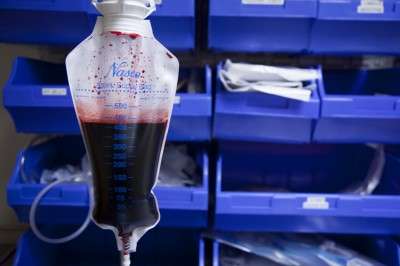Novel bi-directional cannula that prevents severe complications following cardiac surgery

A novel bi-directional cannula that prevents severe complications following cardiac surgery has been developed by School of Clinical Sciences' Mr Randall Moshinsky.
A Department of Surgery Adjunct Senior Lecturer and Monash Health Cardiothoracic Surgeon, Mr Moshinsky has recently patented the device in the US that will enable safer cardiopulmonary bypass procedures and extra corporeal membrane oxygenation (ECMO) support of the circulation and respiration.
Mr Moshinsky's two co-inventors of the device are Mr James McMillan, Head of Perfusion Services and cardiac anaesthetist Dr Elli Tutungi.
Perfusion Services operates the clinical perfusion service for the cardiothoracic surgery unit at Monash Medical Centre.
Dr Tutungi, a Monash University graduate, is the former Director of Anaesthesia and Co-ordinator of the Cardiac Anaesthetic Unit at Monash Medical Centre.
"Peripheral cannulation for cardiopulmonary bypass is commonly performed via the femoral artery in patients needing temporary life support for heart or lung failure in the intensive care unit (ECMO) and during certain complex cardiac surgical procedures," said Mr Moshinsky.
"One of the potential complications of femoral cannulation for cardiopulmonary bypass is leg ischaemia, or lack of oxygen, due to inadequate flow of blood to the limb below the point of insertion of the cannula.
"This can result in severe complications including compartment syndromes and sometimes require a below knee amputation.
"The current techniques to prevent leg ischaemia with femoral cannulation are complex and therefore have not been widely adopted," he said.
Importantly, the novel bi-directional cannula developed by Mr Moshinsky and his Monash colleagues provides adequate flow to the limb below the cannulation site.
"The cannula pre-clinical study results have been excellent and the cannula is due to start clinical trials in early 2015 under the support of the Victorian Government's Health Market Validation Program," said Mr Moshinsky.
Following the successful pre-clinical trials, Mr Moshinsky and his team entered into a worldwide strategic alliance with the Italian-based Sorin Group for the development and commercialisation of the device.
Sorin Group is a global medical device company and a leader in the treatment of cardiovascular diseases.
Beyond the bi-directional cannula, Mr Moshinsky is currently developing a sternal protection device, also for use in cardiac surgery.
Mr Moshinsky is hopeful his new device will reduce trauma to the sternum and reduce blood loss from the sternum during cardiac surgery.
Clinical trials of the sternal protection device will also start in early 2015.

















